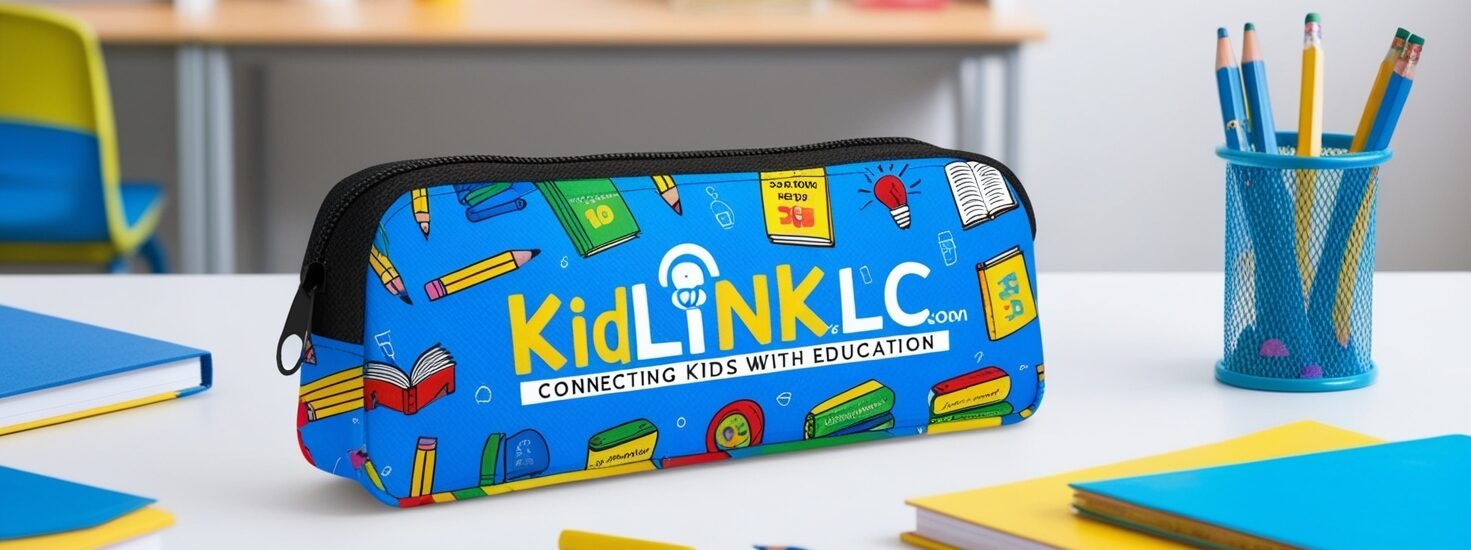What if the key to unlocking your child’s potential in special education is your ability to speak up for them? The special education system can feel complex and overwhelming. But, your voice is crucial. You need knowledge and determination to make sure your child gets the education they deserve by law.
As a parent, you become a special education advocate. You fight for your child’s rights and needs. You’ll meet challenges, but knowing about resources and strategies can help you. This way, you can make sure your child’s education rights are respected.
Learn how to advocate for your child’s needs in special education. We’ll cover the basics of advocacy and the support systems available to you. This will help you succeed in ensuring your child gets the education they deserve.
For more resources, check out KidLinkLC.com. They offer tools to help with educational challenges and encourage kids to reach their goals.
Key Takeaways
- Advocacy in special education is vital for getting the right services.
- Knowing your rights and resources helps you advocate better.
- Talking well with the educational team is key.
- Learning about special education laws can give you power as a parent advocate.
- Building trust with school staff leads to better discussions.
Understanding the Special Education System
For parents and caregivers, understanding the special education system is key. It starts with the Individuals with Disabilities Education Act (IDEA). This law makes sure students with disabilities get the special help they need. It’s important to know the different services available for your child’s unique needs.
Schools have a process to check if a child needs special education services. This includes looking into referrals, evaluations, and making an Individualized Education Plan (IEP). The IEP is a plan made just for your child. It lists goals and the help they need to reach them.
Here are the main parts of the special education system:
- Eligibility Criteria: Learn about the rules a child must meet to get special education.
- Available Services: Find out about the different kinds of support, like speech therapy and academic help.
- Importance of IEPs: See how IEPs can make a big difference in a student’s education.
Getting through this complex system can be tough. Working with a special needs advocate can really help. Advocates give parents insights and support. They help understand rights, the process, and how to talk to teachers to make sure your child’s needs are met.
| Component | Description |
|---|---|
| IDEA | A federal law ensuring special education services for students with disabilities. |
| Eligibility | Criteria that determine if a child qualifies for special education services. |
| IEP | A personalized plan detailing the educational goals and required services for a child. |
| Advocacy | Support provided by special needs advocates to help navigate the special education system. |
Importance of Advocacy in Special Education
Advocating for children with disabilities is key to making sure they get fair chances in school. It means understanding special education and talking with teachers and school leaders. As a parent, you can greatly influence your child’s school life.
Good advocacy means getting support that fits your child’s needs. When parents get involved and informed, schools can make better plans for their students. Studies show that parents playing a part in their child’s education helps them do better in school. This shows how important it is for parents to speak up for their kids.
Knowing about special education laws and support services helps you move through the system better. Special education advocates can help you understand your rights and how to work with IEPs. With this knowledge, you can speak up for your child’s needs more effectively.
To improve your child’s education, it’s important to talk with school staff. Working together with teachers can make your advocacy stronger and help match school plans with your child’s goals. This teamwork is key to making sure every child gets the support they need to succeed.

How to Advocate for Child’s Needs in Special Education
Advocating for your child’s special education needs requires key strategies. Start by building a team for the IEP that listens to everyone. Then, talk clearly with teachers to create a positive dialogue that helps your child succeed.
Creating a Collaborative IEP Team
Starting a strong IEP team is crucial for advocating for your child. This team includes parents, teachers, and specialists who know your child well. By making sure everyone talks and shares ideas, you create a team that works together to make the best education plan.
Establishing Clear Communication with Educators
Keeping in touch with teachers is key for advocating for your child’s education. Regular talks about your child’s progress help you speak up for their needs. A place where questions and worries are listened to makes working with teachers better.
| Strategic Step | Importance |
|---|---|
| Forming a Collaborative IEP Team | Engages various perspectives for a comprehensive IEP. |
| Maintaining Open Communication | Builds trust and ensures ongoing support for your child. |
Researching Your Child’s Disability
Understanding your child’s disability is key to helping them in school. You need to know their specific needs to support their learning. By doing research, you can find the right help for their learning style and challenges.
Understanding the Specific Needs
Your child’s needs come from their disability’s unique aspects. Research helps you see how their condition affects their learning and behavior. This knowledge lets you pick the best educational methods for them.
Use special education resources and research to get a better understanding. This way, you can create support plans that fit them best.
Gathering Resources and Data
It’s important to gather the right resources for advocacy. Many organizations offer data and tools to help you understand your child’s disability. Joining community workshops or talking to other parents can lead to finding helpful special education resources.
Start with online guides that explain special education, including IEPs. Look at how special education works for more information and support.

Learning Special Education Law
It’s key for parents to understand special education law to help their child. Knowing your rights helps you speak up for your child in school. Learning about the laws schools must follow makes sure your child gets the right support.
Understanding Parent Rights in Special Education
Parents are very important in special education. You have rights to protect your child’s learning. These rights include:
- The right to access your child’s educational records.
- The right to participate in IEP meetings.
- The right to request evaluations for special education services.
- The right to obtain prior written notice regarding any changes in your child’s eligibility.
Familiarizing Yourself with IEP Regulations
IEP regulations are key to special education law. They help create your child’s Individualized Education Program. Important parts to know include:
| IEP Component | Description |
|---|---|
| Present Levels of Performance | A description of your child’s current competencies and needs. |
| Goals and Objectives | Specific, measurable, achievable, relevant, and time-bound goals must be established. |
| Services Provided | Detailing the special education services your child will receive. |
| Assessment Methods | Methods that will be used to measure your child’s progress toward goals. |
Effective Communication Strategies
Talking effectively is key when you’re advocating for your child’s special education needs. As an advocate, you can use many strategies to talk well with school staff. Learning these ways to communicate helps make sure your child’s needs are understood. This can lead to better educational support.
Active Listening Techniques
Listening well helps you have respectful talks with teachers. Paying full attention lets you understand their views better. Here are some tips:
- Acknowledge Verbal Cues: Nodding or saying “I see” or “Go on” shows you’re listening.
- Clarify Points: Ask questions to make sure you get what they’re saying.
- Summarize Discussions: Restate key points in your words to show you’re paying attention.
How to Convey Your Child’s Needs
Being clear is important when talking about your child’s school needs. Use examples to make your points clear. It helps to prepare an outline or notes before meetings, including:
- Your child’s strengths and challenges: Talk about specific skills or areas where they struggle.
- Desired outcomes: Explain what educational help your child needs to do well.
- Supporting documentation: Bring documents like assessments or reports to support your requests.
Writing things down is a strong way to communicate in education. Send emails after meetings to sum up what was talked about and what actions were agreed upon. For more tips on advocating for your child’s education, check out online guidelines.

Building Relationships with School Staff
Creating a strong bond with school staff is key for effective advocacy. It helps with parental support in special education and makes working together easier for your child. Trust and clear communication with teachers and administrators are important. They help you talk about your child’s needs and solve problems together.
Developing Trust with Teachers and Administrators
To build trust, talk often with teachers and school leaders. Respect their knowledge while still advocating for your child. Going to school events and checking in regularly keeps your relationship strong. Saying thank you for their hard work makes the bond better. A strong partnership means better support for your child’s education.
Navigating Difficult Conversations
Talking about your child’s needs can sometimes be hard. When disagreements happen, focus on solving problems, not fighting. Plan your meetings by thinking about what you want for your child. Use “I” statements to share your feelings without blaming others. The aim is to find solutions that help your child. Keeping track of your talks can be useful for later discussions.
| Strategies | Description |
|---|---|
| Regular Communication | Stay in touch with teachers through email or meetings to discuss your child’s progress. |
| Collaboration | Work together with school staff to set mutual goals for your child’s academic and social development. |
| Positive Reinforcement | Express gratitude for the efforts of educators to build a supportive atmosphere. |
| Constructive Feedback | When addressing concerns, focus on specific issues while offering solutions for improvement. |
The Role of a Special Education Advocate
A special education advocate is key in helping your child through the complex education system. They offer guidance that fits your family’s unique needs. This support is crucial when dealing with your child’s educational challenges.
These advocates work to connect families and schools. They help understand and use the Individualized Education Program (IEP) process. This ensures all services and accommodations your child needs are covered. They improve communication and teamwork among educators and therapists.

Having a special education advocate can give you a stronger voice for your child’s needs. They bring expertise that leads to better resource allocation. This support makes it easier to handle tough talks and protect your child’s rights at school.
Knowing when to seek child advocacy services is important. These experts can spot areas where your child might be falling behind. They know the laws about special education, which can be a big help for parents.
| Key Benefits of Hiring a Special Education Advocate | Description |
|---|---|
| Expertise | Advocates have deep knowledge of special education laws and steps. |
| Support | They help families grasp IEP documents and steps. |
| Communication | They make it easier for parents and school staff to talk. |
| Conflict Resolution | They help solve disputes and find solutions. |
Using advocacy services for your child can greatly improve their education. These experts are key to getting good results and making sure your child’s rights are protected. For more details on advocacy and educational support, check the website’s terms of use.
Resources for Parent Advocates
As a parent advocate for children with disabilities, using the right resources can make a big difference. Joining educational advocacy groups and getting special education resources helps you make better choices. Getting guidance services also gives you the power to help your child.
Finding Educational Advocacy Organizations
There are many groups out there to help parents with special education. They offer workshops, webinars, and personal advice. Look for local and national groups that fit your child’s needs. It’s important to find the right ones for your child.
Utilizing Online Resources for Special Education
Online resources are full of information on how to advocate for your child’s education. Websites can teach you about legal rights, how to handle IEP meetings, and educational strategies. Check out special education resources from schools and state departments. These online tools can help build a strong support network for you.
https://www.youtube.com/watch?v=hIiVPWGNNGc
Negotiation Techniques for IEP Meetings
Negotiation techniques are key in IEP meetings to advocate for your child. They help create a team effort, leading to better outcomes for your child’s education. Learning these techniques lets you share your views and respect others’ opinions.
Approaches to Ensure a Positive Outcome
Starting with a positive vibe is crucial in IEP meetings. Clearly state your goals and what support your child needs. Here are some tips to help you:
- Preparation is essential: Collect info on your child’s strengths and challenges.
- Active listening: Respect the views of school staff and address their worries.
- Focus on collaboration: Highlight the goal of improving your child’s education together.
For more tips on negotiation, check out this resource.
Techniques to Handle Disagreements
Agreements might not always be easy to come by, but it’s important to handle them with respect. Here are some strategies:
- Stay calm and composed: Emotional reactions can block effective conversation.
- Use “I” statements: Share your feelings without pointing fingers.
- Seek common ground: Find areas you all agree on before tackling disagreements.
Using these negotiation tips in IEP meetings helps you and supports your child’s success. Being a strong advocate makes sure their needs are always considered in school.

| Technique | Description | Benefit |
|---|---|---|
| Preparation | Gathering data and understanding your child’s needs | Promotes clarity and focus in discussions |
| Active Listening | Engaging fully with the perspectives of others | Builds rapport and trust with team members |
| Common Ground | Identifying shared interests before discussing disagreements | Encourages cooperation and reduces tension |
Utilizing Child Advocacy Services
Child advocacy services are key for families dealing with special education. They give you the tools to speak up for your child’s needs. These services help you advocate for your child.
Working with an educational rights advocate can open your eyes to what your child should get in school. They explain the laws about special education. This helps you know your rights and your child’s. They also help talk to schools.
Having a lawyer for special education matters is also crucial. If there are issues with your child’s IEP or school matters, a lawyer can help a lot. They make sure your child gets the services and help they need by law.

- Training and workshops for parents
- Individualized support for educational goals
- Guidance on legal processes and documentation
Using these services can make you a stronger advocate for your child. It helps you work better with teachers. And it makes sure your child gets what they need in school.
Preparing for an IEP Meeting
Getting ready for IEP meetings is key to making them work well. Knowing how the IEP process works helps guide the conversation. It also leads to better outcomes for your child. Having the right documents and clear goals makes these meetings more productive.
Gathering Relevant Documentation
Before the meeting, gather important documents. You’ll need:
- Assessment results
- Previous IEPs
- Progress reports
- Any medical or psychological evaluations
- Relevant teacher observations
Having these documents ready saves time. It lets you quickly show data that proves your child’s needs and goals. Try to keep all these documents in one place. This makes it easy to present them during the meeting.
Setting Goals for the IEP Meeting
Setting clear goals is key to a successful IEP meeting. Here’s what to do:
- Identify specific areas you want to improve.
- Work with teachers to make sure goals match educational standards.
- Put your child’s needs first, using the latest data.
Talking about these goals with the IEP team before the meeting helps focus the discussion. Knowing what you aim to achieve helps you speak up for your child’s needs better.

Dealing with Resentment and Frustration
Advocacy in the special education system can be tough. Parents often feel resentment and frustration. You might face many challenges trying to get the right resources for your child. These challenges can make you feel overwhelmed, which can hurt your ability to advocate effectively.
To deal with these feelings, try these strategies:
- Reflect on your motivations: Remember why you started advocating for your child. Keeping their needs in mind can help you stay positive.
- Practice self-care: Do things that help you relax and feel good. Taking care of your mental health helps you advocate better.
- Seek support: Talk to other parents or join support groups. Sharing stories can make you feel less alone and more supported.
Understanding what makes you feel frustrated can help you handle it better. Acknowledging these feelings is key to dealing with frustration in advocacy. Writing in a journal can be a good way to turn negative feelings into positive actions.

Using these strategies can turn emotional challenges into chances for growth. By managing your feelings well, you can stay focused on your child’s education.
| Emotion | Possible Triggers | Managing Strategies |
|---|---|---|
| Frustration | IEP delays, lack of communication | Active listening, problem-solving discussions |
| Resentment | Feeling unheard, unmet expectations | Open dialogues, setting realistic goals |
| Overwhelm | High demands, emotional fatigue | Time management, self-care practices |
The Impact of Emotional Intelligence in Advocacy
Emotional intelligence is key in navigating the special education system. It helps you connect better with school staff. By understanding others’ feelings, you can talk with empathy. This creates a team spirit that’s crucial for successful advocacy.
Building emotional strength is vital for advocating for your child. It helps you handle the tough parts of the job. With strong emotional health, you can keep your focus on your goals, even when things get tough.

- Practice active listening to get what educators and staff think.
- Maintain a calm demeanor to shape the conversation positively.
- Express appreciation for teamwork to build stronger bonds.
- Stay focused on your child’s needs to avoid emotional distractions.
Using these tactics makes you a smarter advocate. You bring knowledge and emotional smarts to the table. This mix is key to working well with teachers, which helps your child succeed in school.
| Emotional Intelligence Skills | Benefits in Advocacy |
|---|---|
| Self-Awareness | Allows you to recognize your emotions, leading to clearer communication. |
| Empathy | Facilitates understanding the needs and emotions of school staff. |
| Emotional Regulation | Helps manage stress and stay focused during negotiations. |
| Social Skills | Enhances relationships, making collaboration easier and more effective. |
Case Studies of Successful Advocacy
Looking into special education case studies shows how advocacy can change a child’s school life. Parents and advocates work hard to make sure kids get the education they deserve. They use many strategies to get good results.

Take a family with a child who has autism. They did a lot of research and learned about educational rights. They made a detailed plan for the IEP team that showed their child’s strengths and needs.
This plan helped them talk better with the team. It led to getting support that made learning better for their child.
Another story is about a family with a child who struggled with dyslexia. They faced many problems getting the right help. Then, they got help from an advocate who taught them about special education laws.
This knowledge let them ask for what their child needed. Soon, a new learning plan was made that helped their child read better.
| Case Study | Advocacy Strategy | Outcome |
|---|---|---|
| Autism Advocacy | Comprehensive IEP Presentation | Tailored support strategies implemented |
| Dyslexia Support | External Advocacy Guidance | Innovative learning plan created |
| ADD Challenges | Collaboration with School Psychologist | Behavioral intervention strategies adopted |
These stories show how important good advocacy can be. If you’re advocating for your child, these stories can help and motivate you. They show how to make sure your child gets a fair chance at education.
Conclusion
Advocacy in special education is key for your child to get the right support and services. This article has shown you how to be a strong parent advocate. It’s crucial to be informed and proactive when fighting for your child’s education.
As you go forward, you’ll work with teachers and staff, learn about legal rights, and improve your communication skills. Being an advocate changes your child’s education for the better. It shows how your actions can help your child and the whole school.
Take action now to make sure your voice is heard and your child’s needs are met. Learn, build relationships, and use resources to support your child. Stay focused and committed; your advocacy can really change things for the better.

























